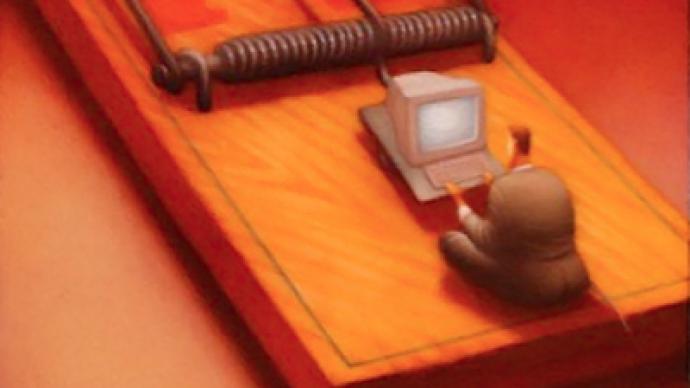Cold War tales live on

In the information age and the internet era that we live in, for many people around the world Russia remains a mysterious and misunderstood land, often portrayed as an evil totalitarian state where only vodka helps people survive the eternal winter.
Foreign media simply love to find dated caricatures a better story than 21st Century truth. Two decades have passed since the Cold War ended, but its ghosts seem to be alive and well in some Western quarters. “The way Russia is presented is often one-sided or plain negative. And if there is no proof, sometimes authors even refer to their own previous publications – it's absurd,” says Anna from Inoforum.ru.She translates foreign articles and blogs so that Russians can read for themselves how they and their country are seen abroad. And quite often she has to deal with something like:“Paranoid, mischievous and heading in the wrong direction, Russia is an awkward prospect for Barack Obama” (The Economist). “Russia: A totalitarian regime in thrall to a Tsar who's creating the new fascist empire” (The Daily Mail). “Russia is institutionalizing a state gangster culture which promises repression and ultimate economic failure for itself” (The Guardian).Perhaps in the times of the Cold War, the Iron Curtain which either blocked or distorted most of the media reports made it easier to form a specific image of an isolated state. But times really have changed. Most foreign press is long available either in its original language or in translation to anyone with access to the internet.The non-profit internet domain Inoforum.ru publishes daily translations of articles about Russia from ten countries and other material from up 90 others. And judging by what is written, Russia is still seen as a vodka-drinking bear, overrun by mafia seeking world domination. Presidents Medvedev and Obama have been pushing hard the restart in relations. But is the Western press deliberately avoiding a restart of its own because Cold War stereotypes are simply easier to sell? “The press is a hostage of McDonald’s: a product has to be easily understood and quickly consumed,” acknowledges journalist Yaroslav Ognev of The Voice of Russia radio. “And if the reader is developing intellectual obesity it's his problem, as long as the stereotype helps make some money and boost ratings!”The Berlin Wall fell over 21 years ago but perhaps some coverage just does not want to let the facts get in the way of a good story.












